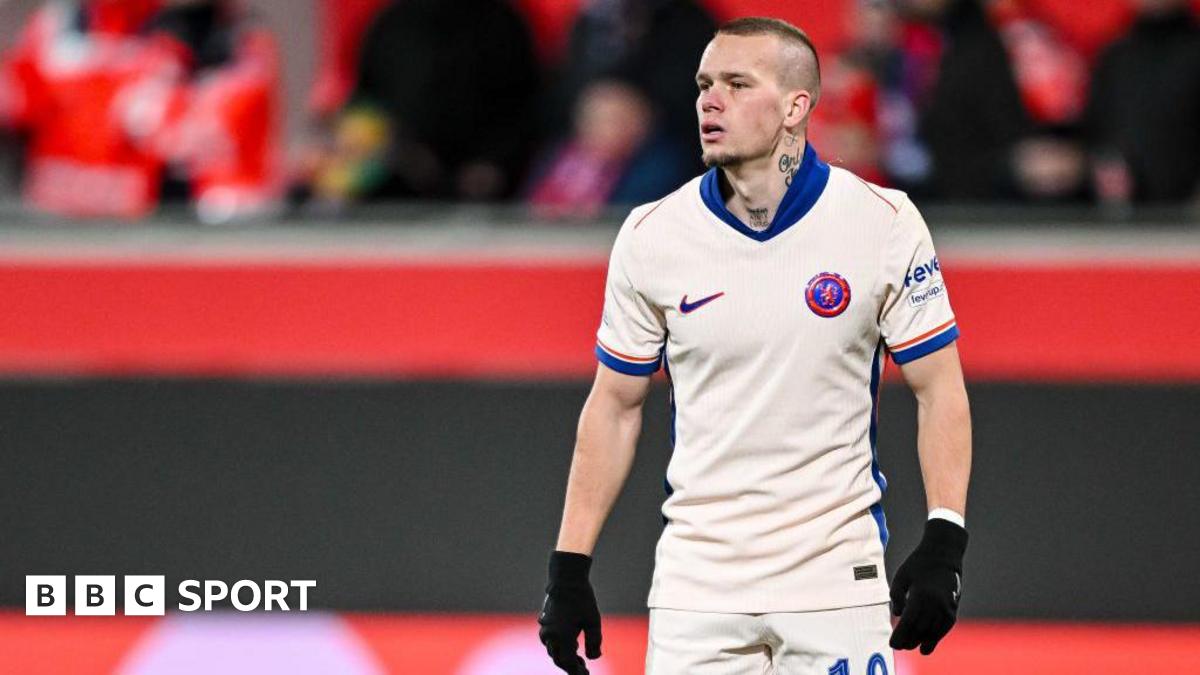Chelsea Star Mykhailo Mudryk Faces Four-Year Ban Amid Shocking Anti-Doping Charge
Mykhailo Mudryk Faces Anti-Doping Charges: A Deep Dive into the Situation
Chelsea Football Club’s winger Mykhailo Mudryk, a Ukrainian international known for his rapid playing style and significant contributions to the team, has found himself embroiled in a serious controversy. The Football Association (FA) has formally charged Mudryk with violations of its anti-doping regulations following a failed drugs test. This surprising turn of events has raised eyebrows and sparked conversations surrounding doping policies in football and their implications for athletes.
The Background of the Charge
Mudryk’s troubles began in December 2023, when he was provisionally suspended by the FA after an "adverse finding in a routine urine test." This incident has not only put his career on hold but also cast a shadow over his reputation as a professional athlete. At just 24 years old, Mudryk has already made a name for himself in the Premier League since his transfer from Shakhtar Donetsk in January 2023, with a reported deal valued up to £89 million. His contributions, totaling 10 goals in 73 appearances, have made him a key player for Chelsea.
Upon receiving news of the adverse finding, Mudryk expressed his disbelief, stating he was in "complete shock." He firmly maintains that he "never knowingly used any banned substances." This claim will be pivotal as he navigates the upcoming legal proceedings surrounding the charges against him.
Understanding Anti-Doping Regulations in Football
The guidelines governing doping in football are stringent, primarily established by FIFA and enforced by national federations like the FA. Players found guilty of intentionally taking prohibited substances face severe consequences, including bans of up to four years. The key steps in the anti-doping process include:
- Sample Collection: Players are subject to routine tests, both during and outside of competition.
- Adverse Analytical Finding: If a sample shows the presence of a prohibited substance, players receive notification and can request further analysis.
- B Sample Testing: Following a positive A sample, players have the right to have their B sample tested to confirm the initial findings.
- Hearing or Acceptance: Players can either accept the findings or request a hearing to contest the charges.
The upcoming weeks will be critical for Mudryk, as the analysis of his B sample could either confirm the adverse finding or exonerate him.
Current Status and Club Support
Since December 2023, Mudryk has not participated in any matches or training sessions with Chelsea, highlighting the immediate impact of his suspension. The club has publicly supported him throughout this ordeal, emphasizing their commitment to his mental well-being and trust in his assertions of innocence. Chelsea manager Enzo Maresca has stated, "We support Mykhailo, and trust means that we believe in him."
Mudryk made a low-key appearance at the UEFA Conference League final in Poland last month, a stark contrast to his usually vibrant presence on the pitch. His absence from matchday squads since December 1 has left fans and analysts speculating about the long-term implications of this situation for both the player and the club.
What’s Next for Mudryk?
The path ahead for Mudryk is uncertain. Depending on the outcome of the B sample analysis, he will either face the disciplinary actions mandated by the FA or have an opportunity to clear his name. The timeline for resolving this issue remains elusive, but here are a few potential outcomes:
- If the B Sample Confirms the Adverse Finding: Mudryk will likely face significant penalties, including a possible four-year ban.
- If the B Sample Exonerates Him: Mudryk will be cleared of the charges, allowing him to resume his career with Chelsea.
- Request for a Hearing: If he contests the charges, a formal hearing will be arranged, adding further complexity and potential delays to the matter.
Conclusion
As Mykhailo Mudryk navigates this precarious moment in his career, the football community watches closely. The case raises essential questions about doping in sports, athletes’ rights, and the robustness of regulatory frameworks. While Chelsea aims to support Mudryk during this uncertain time, the football world waits for clarity on the situation.
Whether Mudryk emerges from this ordeal strengthened or sidelined remains to be seen. One thing is clear: anti-doping regulations play a crucial role in maintaining the integrity of professional sports, and this case emphasizes the need for transparency and fairness in their enforcement.





